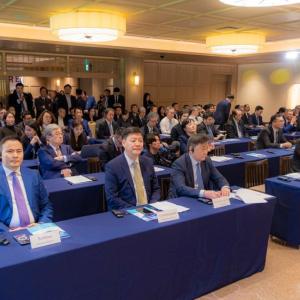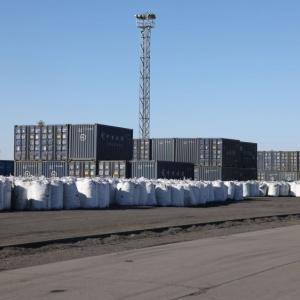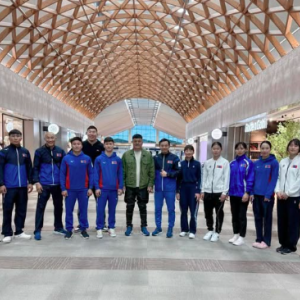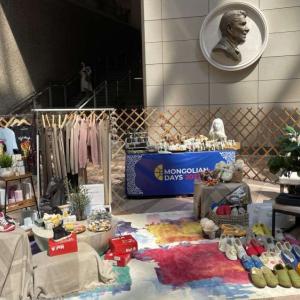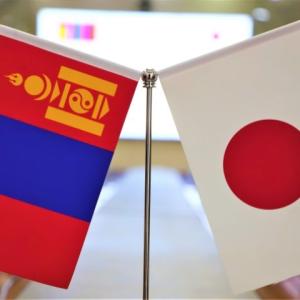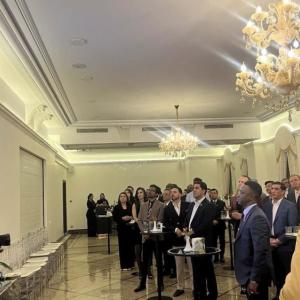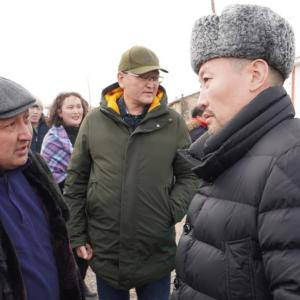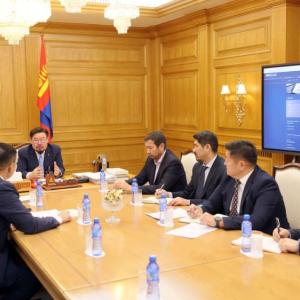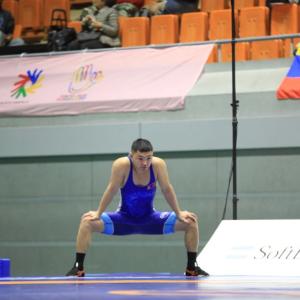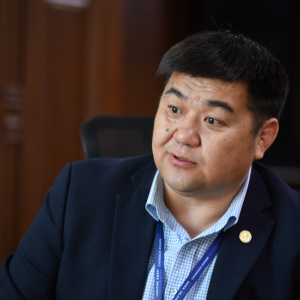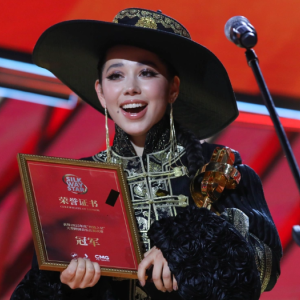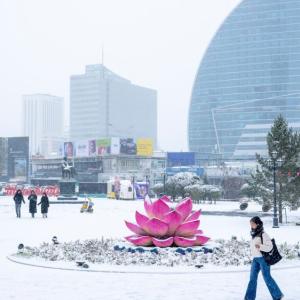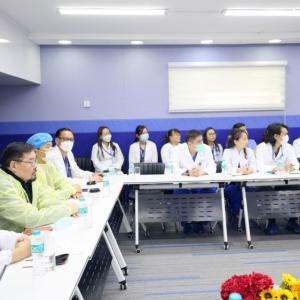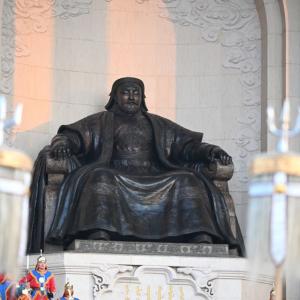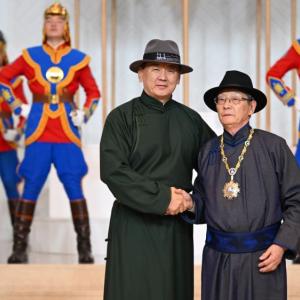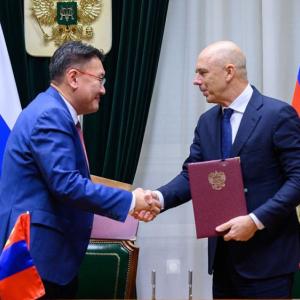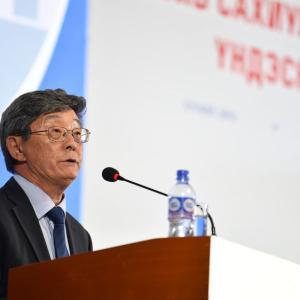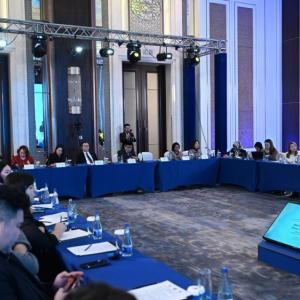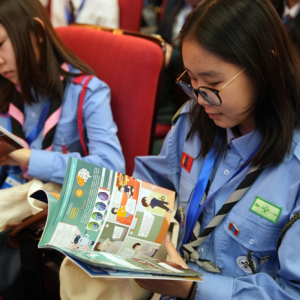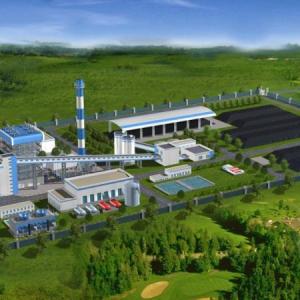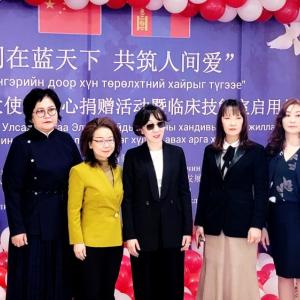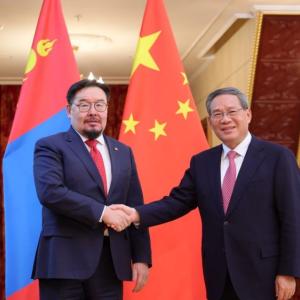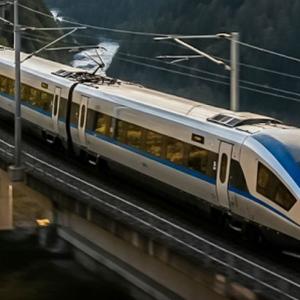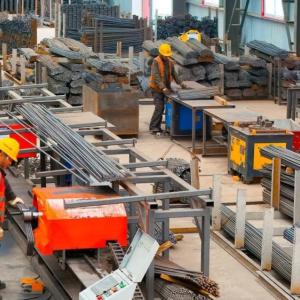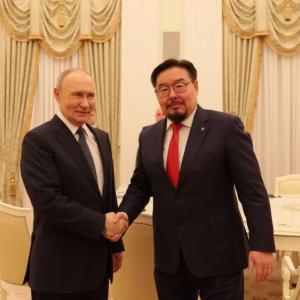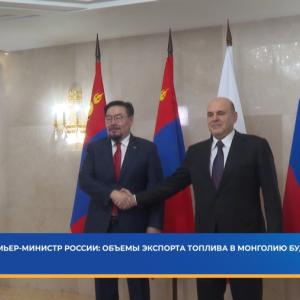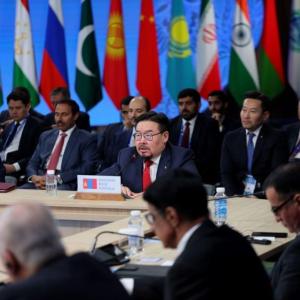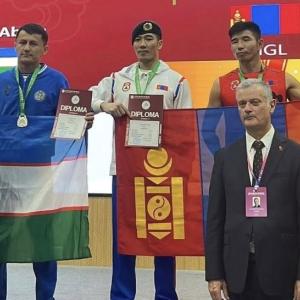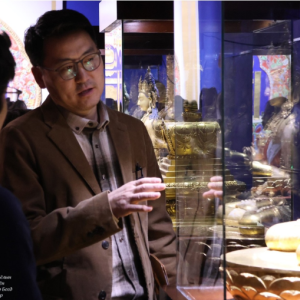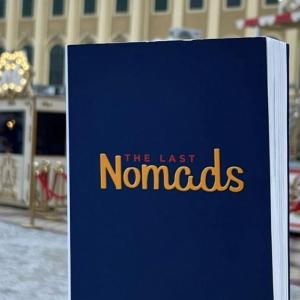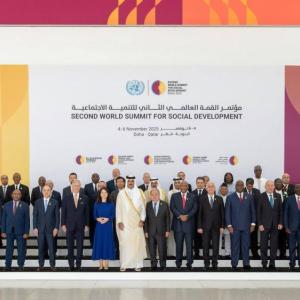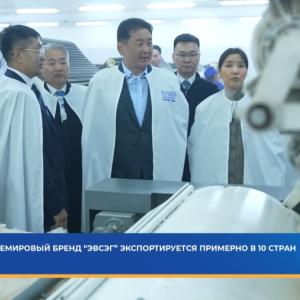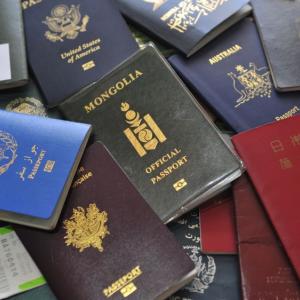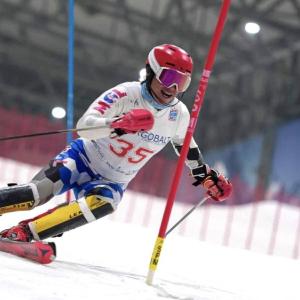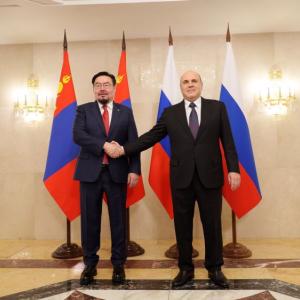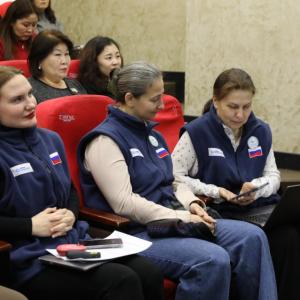From Concert Halls to Classrooms: Lithuania’s Diplomatic Journey in Mongolia
Politics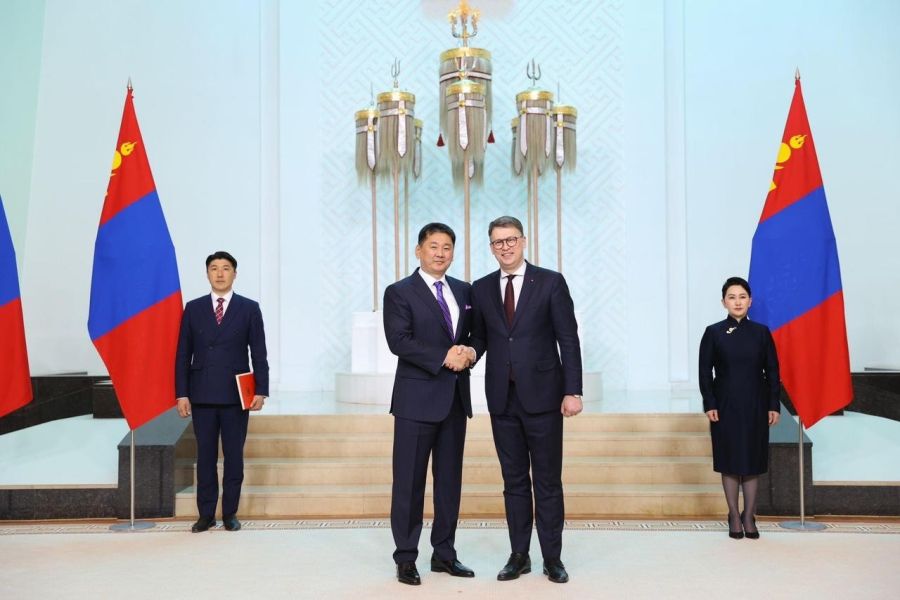
Ulaanbaatar, August 30, 2025 /MONTSAME/. As H.E. Ričardas Šlepavičius, Ambassador Extraordinary and Plenipotentiary of Lithuania to Mongolia, concludes his tenure, we reflect on the milestones of his service — from launching a scholarship program for Mongolian students to presenting a symphony concert marking the 35th anniversary of Lithuania’s independence and the 150th anniversary of composer M.K. Čiurlionis. In this interview, the Ambassador looks back on Mongolia-Lithuania relations, highlights his key accomplishments, and shares his hopes for the future partnership between the two nations.
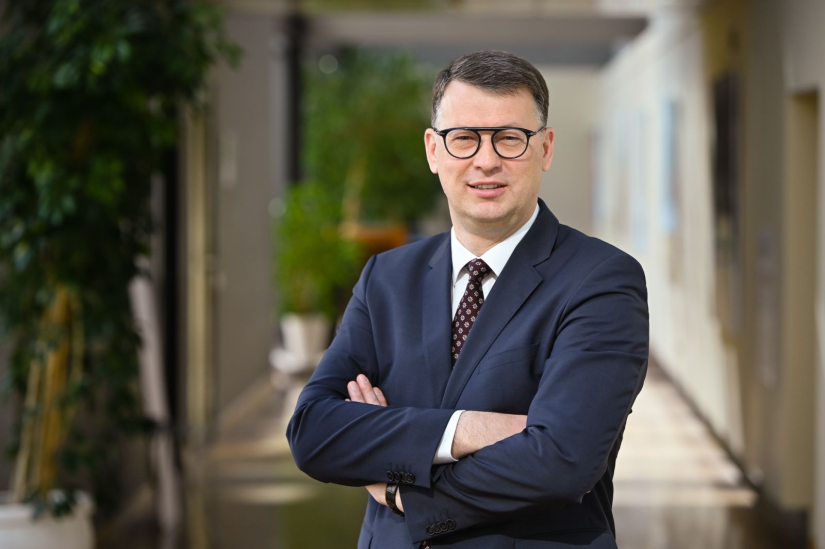
To begin, we’d love to hear more about you — your family and the journey that brought you to your role as Ambassador to Mongolia. Where were you posted before your arrival in Mongolia?
First of all, let me express my sincere appreciation for this opportunity to connect with your audience. It is truly an honour for me.
I am 55 years old, and just a few weeks ago my wife, Daiva, and I celebrated our 32nd wedding anniversary. We have three children.
Our eldest son, Justinas, will be turning 31 soon. He is a scientist with a PhD, specializing in molecular simulations. Our second son, Šarūnas, is 24; he is pursuing his Master’s degree in Human Resource Management at Vilnius University and also works as an HR manager in Vilnius. Our youngest, our daughter Elzė, recently completed the International Baccalaureate program at Seoul Foreign School. She is preparing to study Primary Education at Vilnius University, continuing a family tradition as she aspires to become a teacher.
In fact, she will be the third generation in our family to enter the teaching profession: both of my parents-in-law were teachers, my wife is a geography teacher, and I myself trained as a geographer before pursuing international relations. Both of my degrees were earned at Vilnius University.
I joined the Lithuanian diplomatic service in June 1993, and I have been serving as a Lithuanian diplomat for more than 32 years. Over the course of my career, I have worked in the Russian Federation — in both Moscow and Kaliningrad — at the Lithuanian Embassy in Türkiye, and at the Lithuanian Permanent Representation to the European Union in Brussels. I also served as Lithuania’s Ambassador to Italy for five years. My most recent assignment was as Ambassador of Lithuania to Mongolia, the Republic of Korea, and the Philippines.
This assignment gave me the opportunity to engage in a new and different environment. Asia turned out to be one of the most fascinating and rewarding destinations in my diplomatic career.
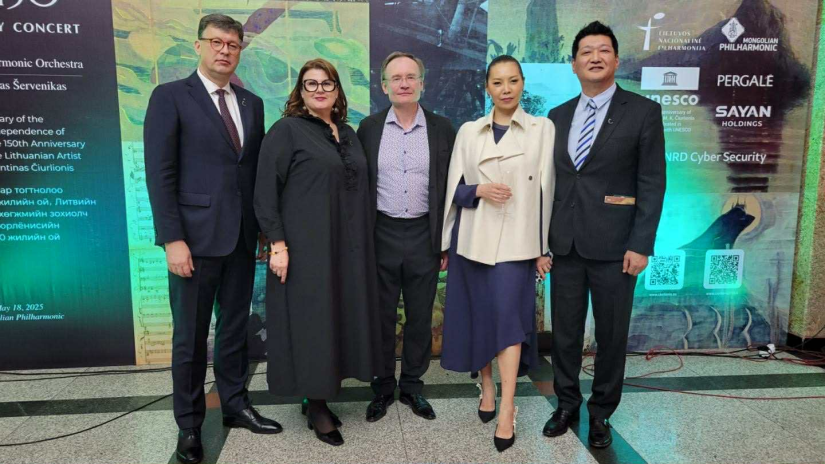
During your tenure as Ambassador in Mongolia, what have been your most memorable experiences or personal highlights?
As you know, I was a Non-Resident Ambassador to Mongolia. It took extra effort to work in Mongolia from Seoul. Here, I would like to underline the active and successful work of the Honorary Consul of Lithuania to Mongolia, Mr. Sainbayar Davaabat. He plays a very important role in promoting cooperation between Lithuania and Mongolia.
I think, personally, the most memorable experience for me was organizing a full symphony concert celebrating the 35th anniversary of the restoration of Lithuania’s independence and the 150th anniversary of the most prominent Lithuanian artist, Mikalojus Konstantinas Čiurlionis, at the Mongolian National Philharmonic. It took one year from my first meeting with the director of the Mongolian National Philharmonic until the concert took place. It was truly a unique experience to witness a Lithuanian conductor and Mongolian musicians performing together, and I believe that our celebration became an important part of the vibrant cultural life of Ulaanbaatar city.
I am very proud that more and more Mongolian students are choosing to study at Lithuanian universities. I initiated a collaboration between the Education Loan Fund under the Ministry of Education and Science of Mongolia and various Lithuanian universities. Thanks to this partnership, every year more and more Mongolian students come to study in Lithuania — not only sponsored by the Education Loan Fund, but also on a commercial basis. Lithuanian universities offer a wide range of programs in English at a very reasonable cost. I am absolutely convinced that these students will become the core of future friendship and cooperation between our countries.
Not only as a diplomat, but also as a geographer, I am happy that scientists and researchers from Vilnius University and the National University of Mongolia completed joint research on the impact of climate change on the Mongolian ecosystem. This project, entirely financed by the Lithuanian Embassy, has opened a window of opportunity for academic cooperation between our countries.
How did your perception of Mongolia change from before your arrival to after serving here? What aspects of Mongolian culture or society left the deepest impression on you?
Mongolia is a modern country with a deeply rooted historical heritage. As a diplomat and a geographer, I already had a perception of Mongolia, even though I had never visited it before 2023. I knew Mongolia as a country of vast landscapes and a proud nomadic heritage. Nevertheless, I must confess that experiencing Mongolia in person gave me a much deeper appreciation of the warmth and hospitality of its people.
I would say that the devotion of Mongolian people to their history, national traditions, independence, democracy, freedom of speech, and human rights left the deepest impression on me. It reminded me of my own country. I can say that Lithuanians and Mongolians share the same universal democratic values.
Mongolia impressively combines tradition with modernization. During my visits to Ulaanbaatar, I met so many educated, motivated, and innovative people — people who are the future of Mongolia, whose ideas, bright minds, and hard work are paving the way toward a prosperous and democratic nation.
Your nation continues to demonstrate remarkable resilience despite the complex geopolitical and geographic circumstances Mongolia faces today. I remember attending the EU Day celebration in Ulaanbaatar, where I was genuinely touched and pleasantly surprised by how many Mongolians showed interest in other countries, including Lithuania. People were eager to try our food and drinks, ask questions, and learn more about our culture. It was a wonderful event that clearly demonstrated the warmth, curiosity, and openness of the Mongolian people, as well as their desire to connect with the wider world.
What do you see as the most significant progress made in Mongolia-Lithuania relations during your tenure?
I would like to look at your question from a more political point of view, with a focus on the future. Some concrete and successfully completed projects I have already mentioned earlier. They are very important, but I think the most significant progress was made in breaking stereotypes and updating the paradigm of Lithuania’s impression in Mongolia — and Mongolia’s impression in Lithuania.
I sincerely believe that after my tenure, our Mongolian colleagues and friends have a better understanding of modern Lithuania — our interests and positions on many topics — just as we in Lithuania now better understand the needs, concerns, and interests of Mongolia. That is vitally important. Mutual understanding is the starting point for meaningful cooperation and partnership.
Globalization, interdependence, and interconnectivity encourage us to engage with parts of the world that once seemed distant or less connected. Mongolia and Lithuania share a strong interest in strengthening our collaboration.
Among the numerous initiatives — such as the Scholarship Program for Mongolian students and the symphony concert celebrating the 35th anniversary of Lithuania and Čiurlionis’ 150th anniversary — which are you most proud of, and why?
During my tenure, our embassy participated in and organised many initiatives, making it difficult to highlight just one. Throughout our diplomatic mission in Mongolia, we sought to strengthen our cooperation in cultural, economic, political, and other spheres.
However, if I were to choose one initiative, I would highlight the educational exchange. Our children are our future, and I believe that student exchange programs are valuable not only in the present but, more importantly, for the future. These experiences create lasting memories and meaningful connections. As students eventually enter the labour market, these ties can develop into real-world cooperation.
Last year, we welcomed several Mongolian students to Lithuania. This year, even more Mongolian students are set to come and pursue a high-quality education. It is essential to maintain and nurture this relations at a fundamental level.
In what areas do you see the greatest potential for future collaboration between Lithuania and Mongolia?
As current practice demonstrates, there are several promising areas for cooperation between Mongolia and Lithuania. I would like to draw your attention to a few of them.
First, transportation and logistics. Mongolian economy has been demonstrating quite a strong tendency to grow. It means that your trade with the European Union will be increasing as well and Mongolian business will be faced with logistic challenges reaching European markets. Lithuania has one of the most developed and modern transport and logistics industries in the EU and Lithuania could become a gateway for Mongolia to the EU market. The time has come to change the mindset for transportation and logistics and to move towards more sophisticated and modern solutions. I would encourage Mongolian transportation authorities and businesses to come to Lithuania and to find ways for mutually beneficial cooperation.
Next, digitalization, cyber security, innovation and entrepreneurship. Lithuania can share its experience in digitalization of public services, help our Mongolian partners building up your cyber security capabilities. Lithuania can take pride in its contribution to the development of the Mongolian startup ecosystem through the launch of a project designed to strengthen entrepreneurship and foster innovation. By working together, we can drive innovation and enhance the quality of life for our people. I sincerely hope that this vision will continue to be pursued beyond my tenure.
We definitely have plenty of opportunities enhancing our trade in commodities, promoting tourism, but I wanted to underline areas which I could call as game changers, the areas that could have a much larger positive impact on the Mongolian economy, its structure and economic independence.
How does Lithuania view Mongolia’s role in Asia and within the broader context of Mongolia-EU relations?
Lithuania views Mongolia as a valuable democratic partner in Asia - a country that shares our commitment to international cooperation, peace, and the rule of law. Within the EU–Mongolia partnership, we recognize Mongolia’s important role as a constructive and respected voice in promoting sustainable development, education, climate action, and regional dialogue. Lithuania fully supports continued and enhanced EU engagement with Mongolia.
We understand that this engagement is part of Mongolia’s third neighbor strategy where the EU is supposed to play a very important role. Lithuania, as a member of the European Union, is ready to be involved actively. Our bilateral friendship is mutually enriching, as both countries bring distinct perspectives shaped by their respective regional and EU contexts.
Mongolia, situated at the heart of Asia, is well-positioned to foster dialogue and cooperation across the region. The international conference “Ulaanbaatar Dialogue on Northeast Asian Security” is an excellent example of how Mongolia has been involved in promoting peace and dialogue in Asia. I am very happy that I had the chance to attend the 10th edition of the Dialogue in May 2025.
What do you wish more Mongolians knew about Lithuania — its history, culture, or people?
When discussing the history of Europe and its nations, many hidden gems - such as Lithuania itself - are often overlooked. Our country has a deep and complex history, a rich cultural heritage and wonderful people. I would be delighted for more Mongolians to learn about Lithuania’s history. Both of our countries can be proud of their unique historical paths, so why not exchange this knowledge? I believe it would greatly enrich our relations - because with knowledge comes understanding, and with understanding comes mutual respect. Our culture also deserves to be highlighted. Lithuania is rich in literary and musical traditions, with internationally admired figures like M.K. Čiurlionis. The works of Lithuanian artists speak across cultures and time. It would be wonderful to see more of Lithuanian culture discovered and appreciated in Mongolia. And, of course, I must mention the Lithuanian people. I hope Mongolians will come to know the warmth, openness, and hospitality that define us. All of these aspects - history, culture, and people - can certainly be explored through various initiatives and forms of long-distance cooperation. However, the best way to truly experience Lithuania is to travel there and see it all come to life.
For Mongolians interested in visiting or studying in Lithuania, what would you recommend they experience or learn first?
Travelers from Mongolia are very welcome in Lithuania. Our country has much to offer - from a wide variety of beautiful natural landscapes to cutting-edge technology museums and architectural masterpieces. We have a number of sights included in the UNESCO world heritage list. By visiting Lithuania you can discover the baroque of Vilnius, modernism of Kaunas, gothic of Klaipeda, the green of Lithuanian forests, the blue of the Baltic sea or the golden of Neringa sand dunes.
For students, I highly encourage exploring our universities. As I already mentioned, many offer programs in English and are internationally recognized.
Some institutions also have a long and distinguished history, having played a key role in shaping Lithuania into the modern, innovative country it is today. As Lithuania strives to become one of Europe’s leading hubs for innovation, we warmly welcome bright minds from around the world.
We are a multilingual nation. Being in Lithuania you can easily communicate in English. Additionally, my personal advice would be to learn a few Lithuanian words or phrases before your visit. Lithuanians genuinely appreciate it when foreigners make the effort to speak our language - it’s a simple gesture that often opens the door to experiencing the true warmth and hospitality of our people.
What message would you like to leave for the Mongolian public and the people you have worked closely with during your time here?
To the Mongolian public, I extend my heartfelt gratitude for your hospitality, friendship, and openness. It has been an honour to serve in your country and to work alongside such dedicated and kind individuals. I leave with deep respect and admiration for Mongolia and its people. There is still much to accomplish in the development of our friendship, and I am confident that our two nations will continue to build on the strong foundation we have established. I look forward to seeing our partnership grow even stronger in the years to come.
My wife and I will always remember one of the most remarkable trips we have had in our lives – the trip to the Gobi Desert. We were astonished and deeply touched by the beauty, diversity and richness of the Gobi.
At the same time, the impression of the infinity of Gobi is false. The ecosystem of the Gobi Desert is very fragile and vulnerable to climate change and human activities. That poses a huge responsibility not only for Mongolia but to the entire international community as well to protect the Gobi and to save it for generations to come.
Interview by E. Daariimaa
 Ulaanbaatar
Ulaanbaatar










